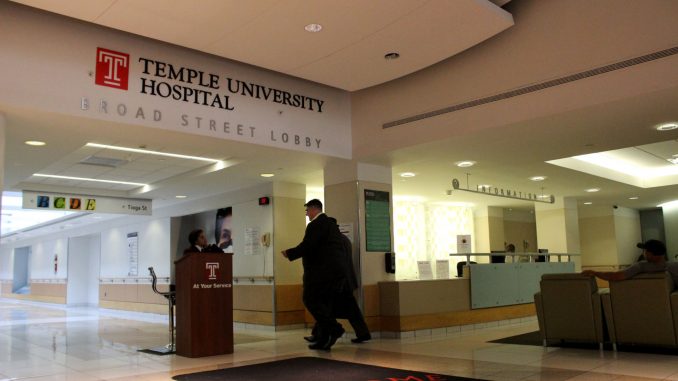
St. Joseph’s Hospital, at 16th Street and Girard Avenue, is consolidating its operations and will close this month.
Kevin Feeley, spokesman for North Philadelphia Health System, said the closure comes from a lack of state funding. St. Joe’s saw about $16 million in 2015 and will be consolidated with Girard Medical Center at 8th Street and Girard Avenue upon its closing at the end of March.
The closure will also cost 675 people their jobs and push an estimated 20,000 patients who visit the hospital’s emergency room annually to go elsewhere, Feeley said.
“We certainly understand that people are concerned about it and upset about it and this is not our first choice to take, it’s necessary action,” he said. “We tried to talk to employees, tried to help them find transitions to other employment but our first priority is the care and safety of our patients.”
Though Temple University Hospital will see much of this traffic, Feeley also said that NPHS has been communicating with other neighboring hospitals like Einstein Medical Center and Hahnemann University Hospital.
“St. Joe’s has been a financially troubled institution for a long time,” said Jerry Silberman, senior staff representative at the Pennsylvania Association of Staff Nurses and Allied Professionals. “St. Joe’s was dependent on other sources of income and it served poor people.”
Silberman said the majority of St. Joe’s business will go to TUH as it has “been growing quite rapidly”—300 nurses have been hired during the past three years and the Emergency Room has also expanded.
“Temple Hospital has been an essential hospital for poor people in the city and it’s equipped to take on [the patients],” he said. “It wouldn’t surprise me if we saw the ER get a lot more hectic.”
Patients are likely to choose between Hahnemann and TUH as the two serve the North Philadelphia community and are located closest to St. Joe’s, Silberman said.
“I doubt it’ll have much impact outside the two hospitals,” he said. “[Business] can be absorbed by the hospitals nearby.”
“There’s no Philadelphia health system, it’s a bunch of competing companies,” Silberman added. “Some of those have a commitment to caring for the public. … Temple has some history of being adept at that.”
For-profit companies like Hahnemann Hospital have a financial responsibility to the shareholders, Silberman said.
Non-profit hospitals are not required to pay taxes because they provide services to the community, Silberman said. He added there is no agency in Philadelphia which as the ability to allocate resources based upon need.
“Access to quality care is part of our mission, and Temple University Hospital stands ready to accept patients who previously might have sought care at St. Joseph’s Hospital,” Temple Health spokesman Jeremy Walter said in an email. TUH declined to comment further.
Lian Parsons and Patricia Madej can be reached at news@temple-news.com or on Twitter @TheTempleNews.


Be the first to comment